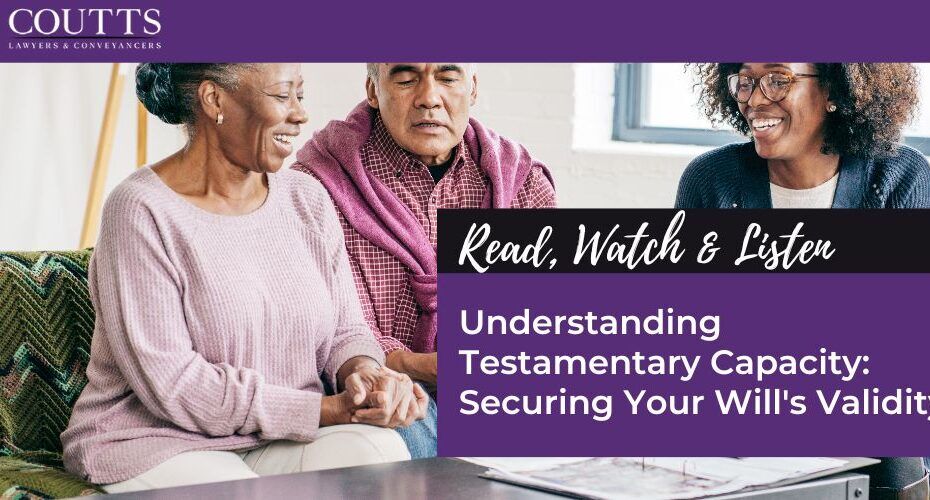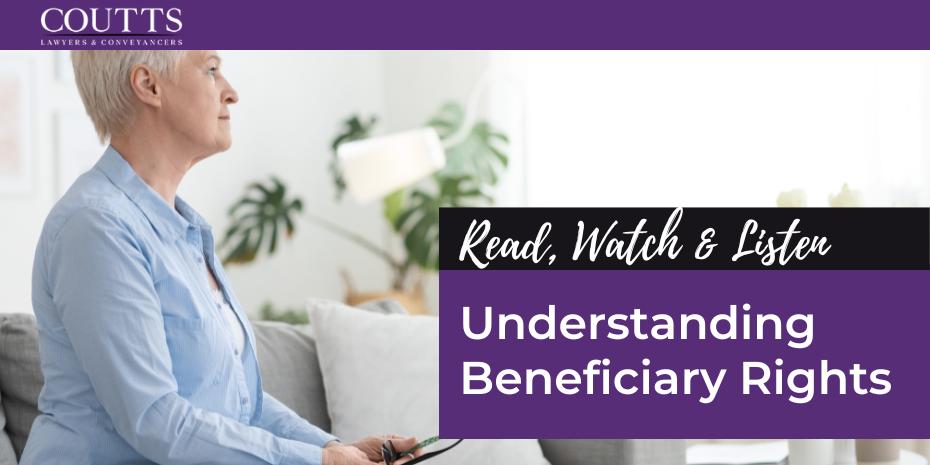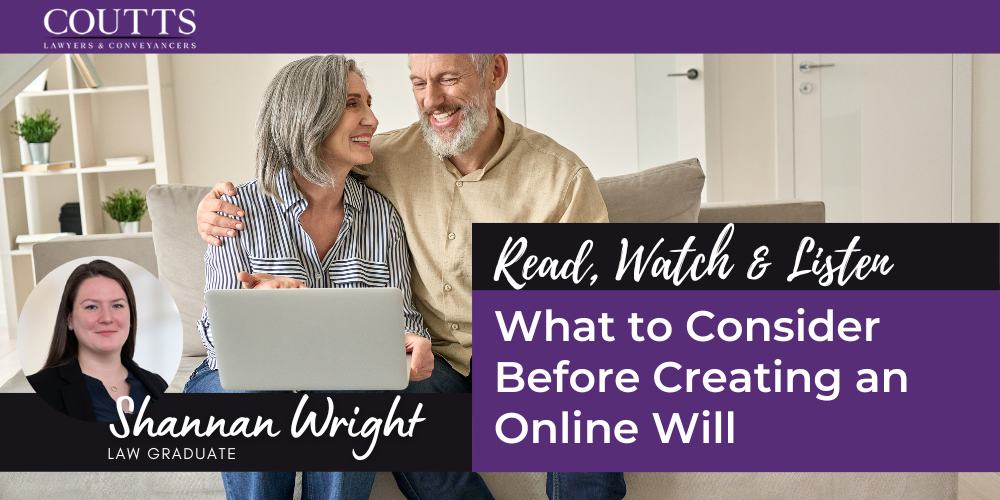KEY TAKE OUTS:
- A solicitor starts by assuming a person has capacity.
- A solicitor uses a four part test to assess the capacity of a person making a Will.
- A report from a doctor is a safeguard against a challenge that a Will is invalid on the grounds of lack of capacity.
When a solicitor is asked to prepare a Will for a client, they have an obligation to ensure that the person making the Will has the capacity to make it.
For a solicitor to assess whether a person has capacity, the solicitor needs to ensure that the client has understood the principles set out in the old English case of Banks v Goodfellow.
A client must understand:
- What a Will is, i.e. that it is a document that sets out their wishes on death, including the division of their assets.
- What assets and debts they will have on their death. The person does not need to know exact values, but they do need to know what they have and whether it is in their sole name or jointly held with another, or in a company or trust.
- Appreciate any claims which may be made on their assets i.e. by persons who may consider they ought to receive assets in the Will, such as a wife/husband if the person is married.
- Have no disorder of mind or insane delusion i.e. nothing that may impact on their decision making.
How does a solicitor ensure a person has capacity?
The solicitor takes instructions from the client by having a direct conversation with the client only. For this reason, friends and family members are permitted to bring a client to the appointment if assistance is required but the friend or family member must wait in the waiting room.
If a support person is required due to a client’s particular circumstances, that support person is not permitted to speak on behalf of the client.
The client must freely answer the solicitor’s questions directly, without the influence of others. This enables the solicitor to better gauge the understanding of the client without prompting from others.
The solicitor will ask open ended questions of the client to ensure that the answers provided are not simply yes or no.
The solicitor will ask the client to provide full financial information in relation to the assets and liabilities the client has and the manner in which the client owns the assets or is responsible for the debt.
The solicitor will also ask the client to provide particulars of their family situation to ensure that they are fully aware of any potential claimants who are not being adequately provided for in the Will.
From the client’s responses to the specific questions asked, the solicitor may not be confident that the client has satisfactorily understood the matters set out in the Banks v Goodfellow test.
What happens if the solicitor has doubts as to a person’s capacity?
In these circumstances, it is likely that the solicitor will require the assistance of the client’s medical practitioner. The solicitor will provide a letter of instruction to the client to hand to their medical practitioner requesting a report outlining:
- How long the client has been their patient.
- How often, and how recently the doctor has seen the client.
- A brief observation of the client’s state of health.
- A conclusion that sets out whether the client has the necessary capacity to execute a Will, noting that the client must fully understand all of the concepts in Banks v Goodfellow (an outline of which would be provided to the doctor in the letter of instruction).
Depending on the conclusion in this report, the solicitor may or may not be willing to prepare a Will for the client.
Circumstances when a solicitor may ask for a doctor’s report before they see the client
Other circumstances in which the solicitor may ask for a report from the doctor even before they see the client is:
- Advanced in age.
- Residing in a nursing home.
- In hospital.
- Suffering from a condition that typically raises concerns as to capacity, such as dementia.
What happens after someone dies, if a person thinks a Will maker did not have capacity to make the Will?
A person can challenge a Will in the Supreme Court if they believe that a person did not have capacity to make the Will at the time the Will was made. If successful, the Will would be deemed invalid.
The challenger has to show that the mental condition of the person making the Will was affected to such an extent that the person making the Will could not understand or appreciate the elements set out in the Banks v Goodfellow test.
The best evidence is evidence obtained around the time the Will was made. Hence if a doctor’s report is requested at the time of making a Will stating that in the doctor’s opinion the person has capacity, together with the solicitor’s notes on their assessment of capacity from their questioning, it is less likely that the court would find the Will to be invalid.
Summary
If a solicitor asks a client to obtain a doctor’s report, it should not be taken as a question mark as to their intelligence, integrity, or ability, as a solicitor starts by assuming a person has capacity. Rather, it is a safeguarding measure to ensure that a Will prepared at a client’s request, is in their best interest and not likely to be questioned or challenged when they pass away.
How can we help?
Please reach out to our friendly Wills and Estates teams at Coutts Lawyers and Conveyancers who are more than happy to assist with any inquiries, including those relating to testamentary capacity and Will making.
For further information please don’t hesitate to contact:
info@couttslegal.com.au
1300 268 887
Contact Coutts Lawyers & Conveyancers today.
This blog is merely general and non-specific information on the subject matter and is not and should not be considered or relied on as legal advice. Coutts is not responsible for any cost, expense, loss or liability whatsoever in relation to this blog, including all or any reliance on this blog or use or application of this blog by you.



